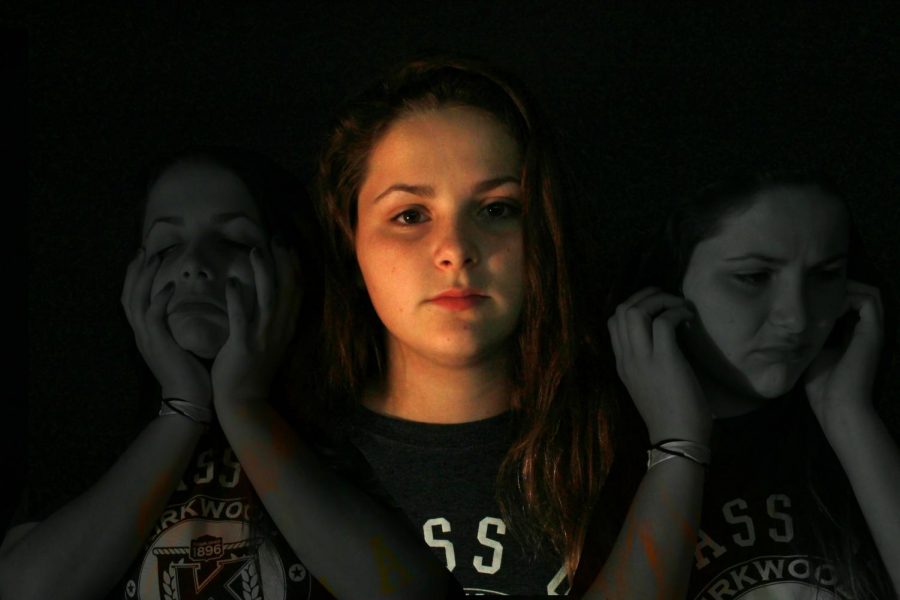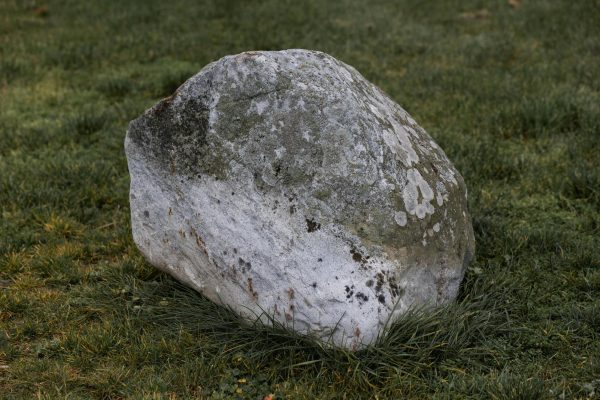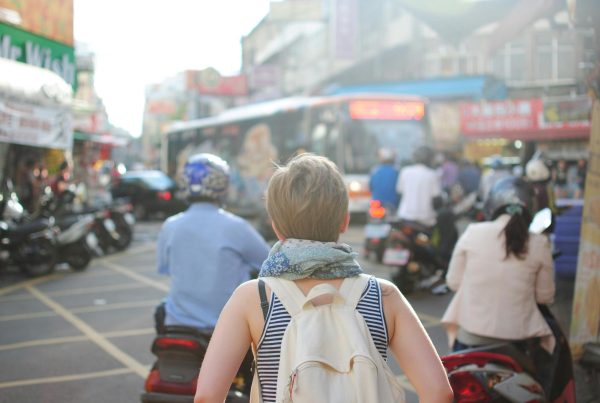The IB: A Balancing Act
Dear IB,
According to your description of the IB program, you want us to “flourish physically, intellectually, emotionally and ethically.” You want us to find balance by providing us with our Creativity, Activity, and Service guidelines. You even provide us with the IB learner profile as guidelines to become the best students possible. Your program creates global citizens, better learners, and an edge in applying to schools worldwide. You’ve crafted an international high school diploma that is taught in 157 countries, and accepted by most universities worldwide.
As a student enrolled in the IB program, I am concerned that in creating some of the best students, you forgot about the people taking the program. I am one of many students across the world currently trying to fill the IB requirements. With my six courses of choice, as well as TOK, I have a fairly busy schedule. I have two years to learn the content and prepare for the exams. On top of that, you want me to demonstrate balance in all the other aspects of my life. I often ask myself how I can find time for the other parts of my life when I am busy managing the academic part of it?
By no means would I consider myself a slacker. On top of the seven required hours of school, I often stay after school an extra few hours. Then, I spend a few hours outside of school to either study, do homework, or meet my CAS requirements. Of course, I have a chance to eat and socialize during the day, but it can’t be my focus. By the time I get home, I’m already exhausted from what I’ve been doing, but I do my extra work anyways. Once I’ve finally finished, my family asks me why I don’t spend time with them anymore, I apologize and then go back to working in my room. I’m sure that there are many teens whose lifestyle reflects mine.
At the end of the day, if I’m lucky, I will get 8 hours of sleep. Now according to the Sleep Foundation, the average teen should get 8-10 hours of sleep a night. Compared to my peers, I have it pretty good because most teens settle for 6.5-7.5 hours per night, though based on what some of my friends say I wouldn’t doubt that there are plenty of people who get 4-6 hours per night.
I want to be balanced. But the amount of work required by the IBDP doesn’t allow for that. At FIS, everyone is encouraged to do the IBDP and there are not many other alternatives. The FIS Diploma is an option, but most students lean in the direction of the IB.
And as part of taking the IB I am expected to be creative, active, and engage in service activities for my 11th and 12th grade year. Moreover, if I want to get into top tier schools, I have to put in a lot of extra work to get 6s and 7s. On top of that, I have to do well in TOK and aim to do the best I can in my Extended Essay to get as many diploma points as I can. If I want to get mostly sevens, and get as close to the perfect IB as I can get, I don’t really have time to be social, because all my time would have to be spent studying, something that many of my own IB teachers have told me.
The stress of the IB doesn’t make it easier for me to select my career path. I am still trying to discover myself, and compared to so many of my peers in America, I don’t have the opportunity to explore as many classes as them. The classes I chose last year are going to decide which universities I can, and cannot, get into. I’m making decisions which will impact my future, when I can barely even decide what I’m going to do when I get home (hint: I’m probably going to study for a few hours). None of our brains are fully developed, yet I am supposed to make a decision about my future? With so much going on, when am I supposed to find my own emotional balance? When am I supposed to sit back and experience my emotions in the moment? When am I supposed to pursue my own interests without having to record my progress and how it impacted me? When can I have time to take it slowly and enjoy my high school years?
So, IBO, consider the students going through your program. We are human beings, not checklists. Many students find themselves making the choice between IB results and wellbeing. Some people can walk this path easily and find themselves with about as much stress as the previous year. Others have to choose between putting all their time into your diploma while neglecting their health and emotional wellbeing for good results, or take care of themselves and make other sacrifices.
I know I am not alone in feeling this way — a quick Google search reveals countless posts discussing the best way to manage IB stress and another search about IB and social life shows that many others have similar problems. I found a blog post where your organization discussed the school-life balance, however you rarely acknowledge the effect your program has on our social lives. The one suggestion, partially related to social life, was to make studying a social activity. The rest of the article seems to focus on how to make your IB successful. While that is important, it fails to acknowledge that a student’s life shouldn’t be school. While certainly school is important, a student shouldn’t be living and breathing school — there should be plenty of time to enjoy being teenagers.
That’s not to say that your program isn’t outstanding. As an IB student, I have an advantage when applying to American universities compared to my non-IB peers (who presumably have honors or AP classes). I get to explore subjects I’m passionate about for two years as well as incorporate a lot of practical experiences in the field, lab, and classroom. There’s no denying that the rigor of your program is extremely attractive, especially to universities. However, due to this rigor also makes it difficult for IB students to balance their personal lives with their school life.
The IBDP, while rigorous, is also extremely inflexible. It asks students to select things they would like to study for two years, when their interests may change. It also assumes that all students learn in the same kind of way. While your IB Career Program that was offered to my year was a step in the right direction, only time will tell if this idea is a suitable alternative.
One of the more personal aspects of the IB – Creativity, Activity, and Service (CAS) – is one of the more stressful parts of the diploma. I feel that every student feels that being creative, being active, and engaging in service activities are important, and that most people will naturally gravitate towards those things, especially if schools have a thriving service community. As it stands, the current CAS guidelines feel artificial. They require people to partake in activities which they may not be passionate about, which in essence is forcing students to do things they do not want to do. This leads to service groups or projects being filled with people who may not even care, and are just trying to find the bare minimum to fill a requirement. While I understand that CAS is there to help students learn balance in their lives, I don’t feel that it lives up to this expectation. CAS often just feels like tedious work.
With the current CAS model, CAS assumes that everything you do is for learning. Most people express themselves creatively or participate in physical activity because they enjoy it. Since they have a natural proclivity to it, it makes sense that they would want to learn more to improve their skills and work their way towards mastery. However, it’s when you have to log and describe your learning process and how it has impacted you that you begin to lose the enjoyment. By relaxing the portfolio requirements, this might become more tolerable. I could easily describe some of my creative projects, my creative process, or what events my service groups did this year and how I played a role in them. From the way that people describe their CAS experiences, it should be fairly clear how they feel about it. It would definitely make CAS more personal. If CAS requirements could be reduced in some fashion, I feel that a large majority of IB students would feel that a lot has been taken off their plate and would find the IB a lot more enjoyable.
The IB program is a rigorous program that is used worldwide, and provides a strong foundation for those heading into higher education. It helps students achieve a deeper level of learning across two years and also allows them to explore their selected subjects in depth. In the same way that you ask me to be open-minded as a learner, I also hope that you, IBO, can be open-minded and consider the impact your program has on its students. Don’t be afraid to question the current system of education, and try something new. In the meantime, I’ll be trying to make things work on my side.
Sincerely,
Micah Gerstner







Scott Bain • Nov 20, 2019 at
Great article…and great questions! I hope this makes it’s way to the IB
Feraille Cowan • Nov 20, 2019 at
Great work Micah! I can’t believe how much you find time for. And I do believe you would super-ceed your CAS requirements with our without a program. I wonder if the guidelines were there but the portfolio would be the product that would be an add on to the transcript rather than a box ticked if that would better represent what students do of their own merit. Then those truly engaged would enjoy the opportunity to document and celebrate their extra-curricular achievements and those that don’t won’t have anything except grades to reflect their experience in school to businesses or universities post graduation. You would surely shine! Keep up the great work 🙂